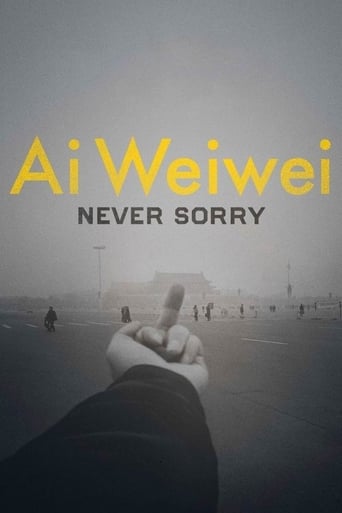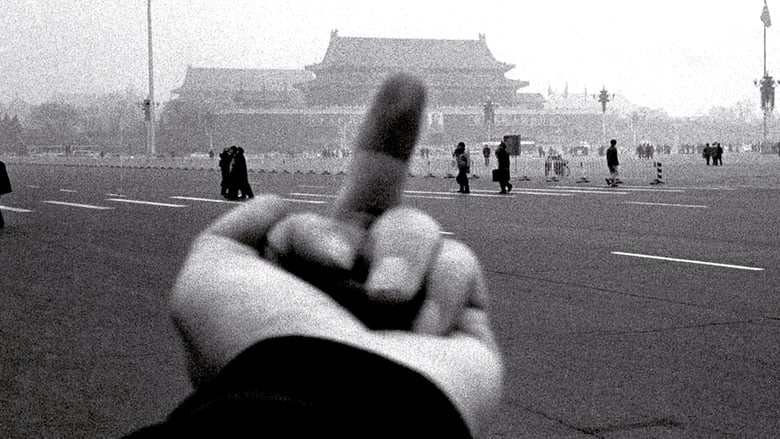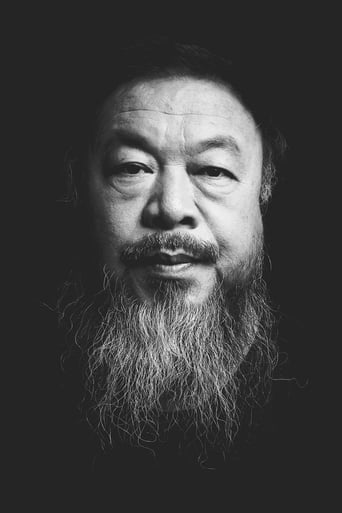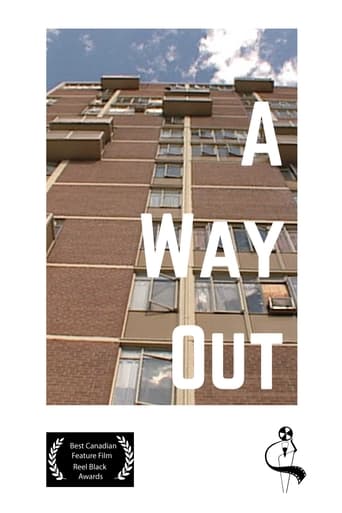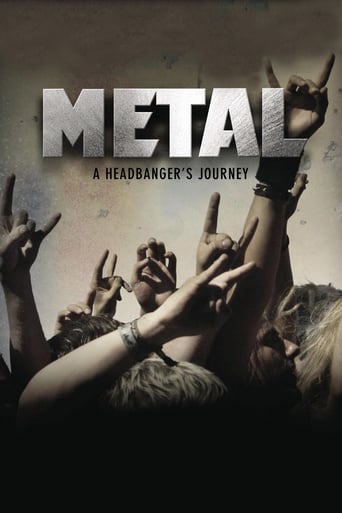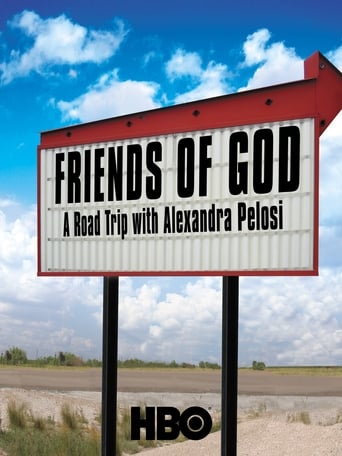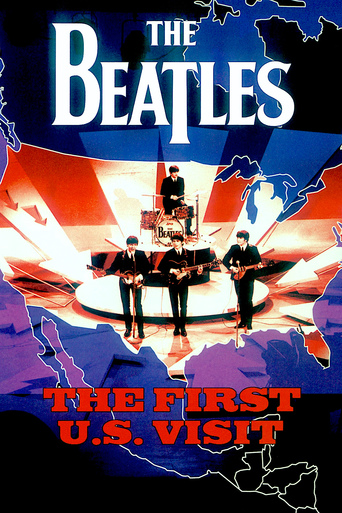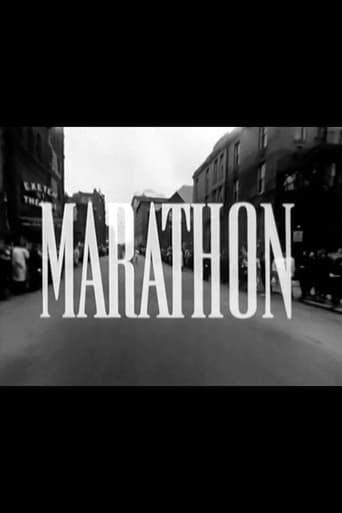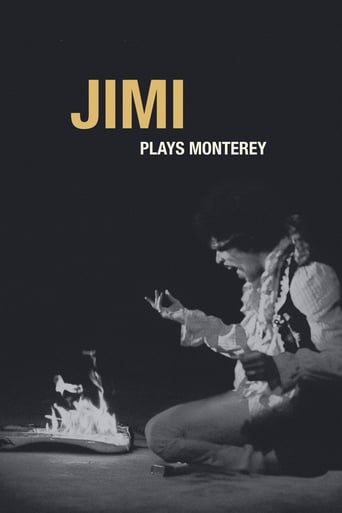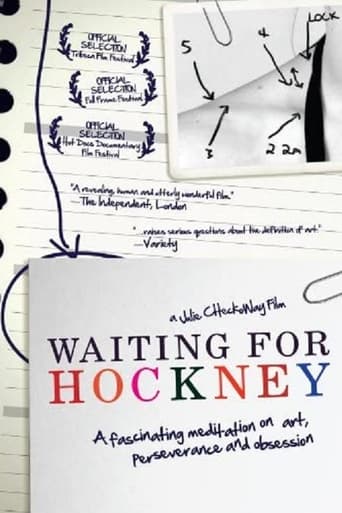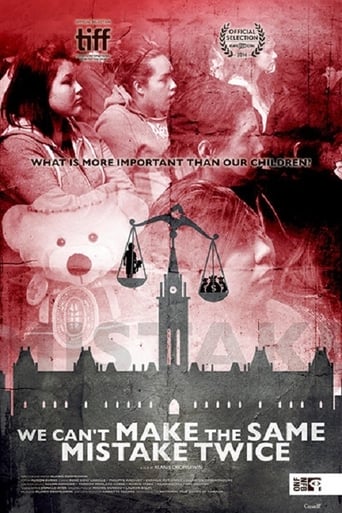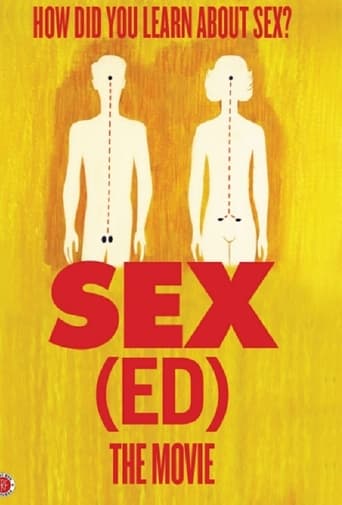Ai Weiwei: Never Sorry (2012)
An account of the many tribulations that Chinese artist Ai Weiwei, known for his subversive art and political activism, endured between 2008 and 2011, from his rise to world fame via the Internet to his highly publicized arrest due to his frequent and daring confrontations with the Chinese authorities.
Watch Trailer
Free Trial Channels
Cast


Similar titles
Reviews
Simple and well acted, it has tension enough to knot the stomach.
The plot isn't so bad, but the pace of storytelling is too slow which makes people bored. Certain moments are so obvious and unnecessary for the main plot. I would've fast-forwarded those moments if it was an online streaming. The ending looks like implying a sequel, not sure if this movie will get one
The film's masterful storytelling did its job. The message was clear. No need to overdo.
Let me be very fair here, this is not the best movie in my opinion. But, this movie is fun, it has purpose and is very enjoyable to watch.
I must admit I knew virtually nothing about the Chinese dissident and artist Ai Weiwei before his detention and disappearance, in 2011, which made world headlines. This documentary, directed by Alison Klayman, does a fine job of capturing the life of Weiwei, who I found to be a very brave and charismatic figure. The film, I thought, was quite inspiring to me and also quite fascinating.The opening scenes show one of Weiwei's cats, who has learned to jump high and put his weight on a door handle and open the door, which is pretty amazing. Then Weiwei in his sly humor states that cats are different than humans because they have no inclination to close a door after they've opened it.His father was a renowned poet in China, but was sent into exile for re-education for 19 years. I imagine this is where Weiwei's iconoclastic spirit began. The movie traces his 12 years in New York City, where his brilliant art conceptions took root. When the crackdown in Tiananmen Square took place, in 1989, Weiwei participated in hunger strikes and demonstrations in protest. In 1993, he returned to China to be with his ailing father, who eventually passed away three years later.Most of the documentary focuses on Weiwei's continuing struggles to achieve more freedom for the Chinese people in a very authoritarian and controlled society. He seems to be in a continual struggle with the government, which shut his blog, surveilled his comings and goings, and even did nothing when security guards beat him in a hotel room, causing his brain to swell, nearly killing him.When the Sichuan earthquake struck China there were over 5,000 children killed, mostly from poor construction of schools, per the film. While the government wanted to keep the names of those who died secret, Weiwei began to identify all the children who died and had people from around the world read one name of each child on his Twitter page, to the consternation of the Chinese government.While some of his compatriots were imprisoned for speaking out against the authorities, such as Liu Xiaobo, Weiwei had escaped that fate. Many felt this was due to his worldwide notoriety, with his shows being so popular in many countries. However, in 2011, he was detained and for nine months held in seclusion. He was eventually released and apparently has slowly resumed his actions to achieve more freedom for the people there.The movie, I thought, was quite inspiring to me, and I found Weiwei's calm but revolutionary spirit to be quite special. The film also gives the viewers a seldom seen inside look at what's going on in China today.
Ai Weiwei is an internationally acclaimed Chinese artist-activist who is provocatively condemning his motherland government for grave social underbellies (in light of an unbalanced economy acceleration) as corruption nonfeasance and misfeasance among officials, systematic injustice, moral languor and freedom repression (a focal point is the aftermath of Wenchuan earthquake in 2008, whose casualties are over 80,000, among which are many children stayed inside shoddily-built school buildings) and valiantly spearheading (not the least in the artist field) a new wave of self-awakening among his fellow compatriots, which has promptly wrought government's mistreatment and investigations, all up to a somewhat "mysterious" disappearance during 2011 for half an year, then later ostensibly claimed by the Chinese government as a series of tax evasion interrogations of Ai's company, then subsequently Ai has been forbid to neither leave Beijing for one-year nor to speak about the matter. So if one is all familiar with the story, this documentary has rather little novel to offer, first- time director Alison Klayman covers a quite comprehensive range to introduce Ai's art, family and the (short but carefully-selected) comments from his friends and peers, but all falls short of incisiveness and compassion. The family card is an omnipotent weapon to probe a more personal facet of the artist himself (his illegitimate son has been briefly discussed here) which could induce empathy for every single viewer, however, this is a common-law generally fits under any similar context, the real Ai Weiwei is still elusive and taciturn. With such a contentious figure, Klayman seems to choose a very conservative story-telling which is exuding from a sheer westerner's point-of-view (a lone fighter against the all-evil oriental and dictatorial institution, surely the truth is much more intricate as we all know), still a shred of information betrays Ai's hooliganism in his own tactic, which would arise more interest (at least for myself). All in all, the film has attest to that Weiwei is a true artist (he is not exploiting all the controversies to grandstand his art work) if nothing else, and by the way, if anyone who is really into Ai's artwork, this documentary is not recommended for you unless you have never heard of his ground-breaking SUNFLOWER SEEDS exhibition.
There are times when I watch a documentary that I realize I am incredibly under-educated on real world issues. Perhaps my head is to glued on the silver screen and television for me to stop and actually research international issues or maybe I am in a country where Kristin Stewart cheating on Robert Pattinson is the only news I hear about for days at a time. Either way, one of my favorite parts about watching a documentary is hearing the stories I would never hear otherwise and coming to a better understanding of other countries, cultures, and struggles for both.This is exactly how I felt after seeing the documentary Ai Weiwei: Never Sorry. The story of a very popular artist trying to make change in China, Ai Weiwei: Never Sorry is a great definition of David vs. Goliath; the everyday man against a system and a country that tries to hold him down.While Ai Weiwei is a very famous artist in China, this film is not necessarily about his art. It definitely covers some of his major pieces that he has done to raise questioning and explanations for the deaths of thousands in China from a deadly earthquake, but the doc is more about his personal fights to try and raise knowledge world-wide and striving to have the country explain many of the "accidents" that have occurred.The main incident that begins this entire journey is Ai Weiwei's attempt to find out more information on thousands of children that died in school collapses resulting from an earthquake. The main concern is that Ai Weiwei believes shoddy architecture, which he refers to as 'tofu' construction, was what caused the schools to collapse and that the tragedies could have been avoided.The reason this actually becomes a story is not because he wants to find out the names of the children that died, it is because the government has not released the names AND tries to hinder Ai Weiwei in finding all the names himself. The government shuts down Ai Weiwei's online blog and squashes any of his attempts to question families and communities about the deaths.Eventually, Ai Weiwei receives over 5,000 names by using mail, interviewing families in person, and using Twitter. What is amazing is this doc is just as much about technology as it is about Ai Weiwei's fight. Eventually, Ai Weiwei is beaten by police, fights for justice against the policeman who wronged him, and has many artists and friends around him who are imprisoned or go missing. This is all documented for the world in the only way Ai Weiwei can: through Twitter. With the Chinese government unable to restrict anything Ai Weiwei does on Twitter, he is free to share his stories and any information he finds through the social website.To read the rest of the review (IMDb form too short) visit: http://custodianfilmcritic.com/ai-wei-wei-never-sorry/
I'll be honest, I am not a political activist. I am not on top of what's happening in the world or in politics both nationally and internationally. And I have one thing to say about that after seeing this movie. Shame on me! For those of you who don't know him (I didn't until this January), Ai Weiwei is a political artist and activist. He is a sculptor, a painter, a muralist and a lone spokesperson in China who opposes the oppression of his country and the lies that he feels they tell. He dares to speak his truth in what is happening behind the closed doors through his artwork and his words. This movie entranced me from the beginning with its humor and information. It was beautiful and frighteningly ugly to see Ai Weiwei's story. He was followed by a group of documentarians who filmed Ai Weiwei and interviewed those around him, from his mother to his wife, friends, and child. Ai Weiwei was depicted as a bright, articulate, and talented man who wanted to make things better for the next generation as he felt his father's generation failed him. Utilizing his art, Ai Weiwei told horrific stories of what the government has covered up. We continued to watch as Ai Weiwei pushes the governments buttons and the envelope. The government was filmed trying to intervene with Ai Weiwei's attempts to communicate what the government was doing. Internet shutdowns lead to Ai Weiwei utilizing Twitter to communicate each and every step of his drama. Brutality from the government was evident. They wanted him shut down and would do anything. Ai Weiwei's future was at stake, but he will risk everything, and I mean EVERYTHING, in order to ensure that his son will have a better future. No fictional movie could have been written to depict a stronger leader and spokesperson than Ai Weiwei. This was real life. This was a man wanting to change the world. That really puts all the rest of us to shame. We take so much for granted. The Facebook posts I see from "friends" who disagree with Obama and can say so with no fear of death or beating. Ai Weiwei didn't have that luxury. We have freedom. We take it for granted. We are spoiled. Think twice the next time you have an opinion and voice it either to a friend or on-line. There are no repercussions. Ai Weiwei wants the citizens of China to have that same freedom.This documentary was one of the most emotional, educational, yet somehow still entertaining (and sometimes funny!) documentaries I have ever had the honor of seeing. Seek out this movie. It's a limited release, but worth the drive to see it. It will change you and how you view the world. How many movies can do that?

